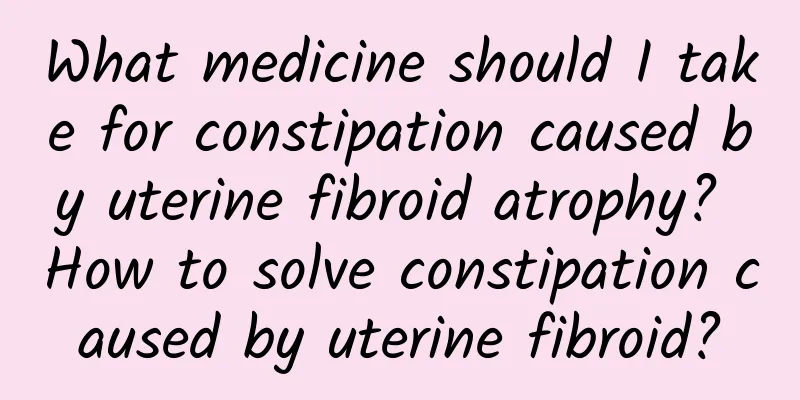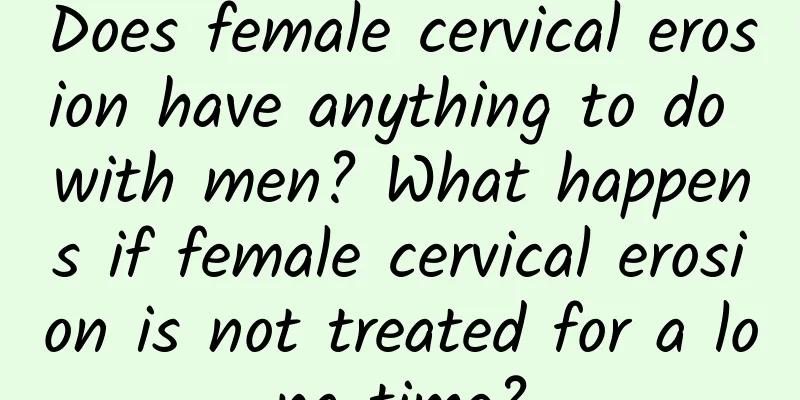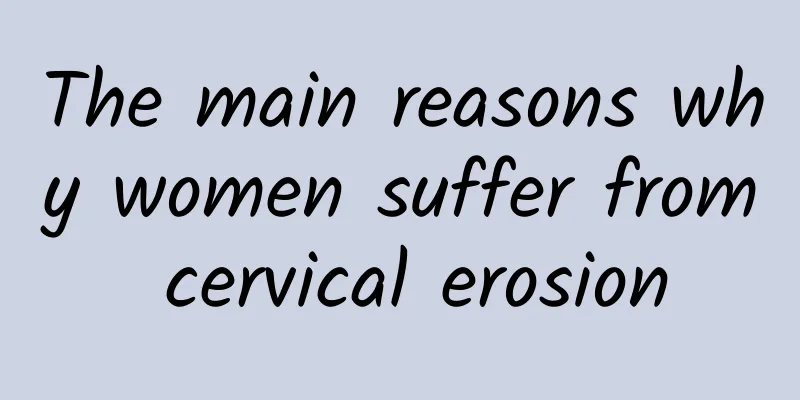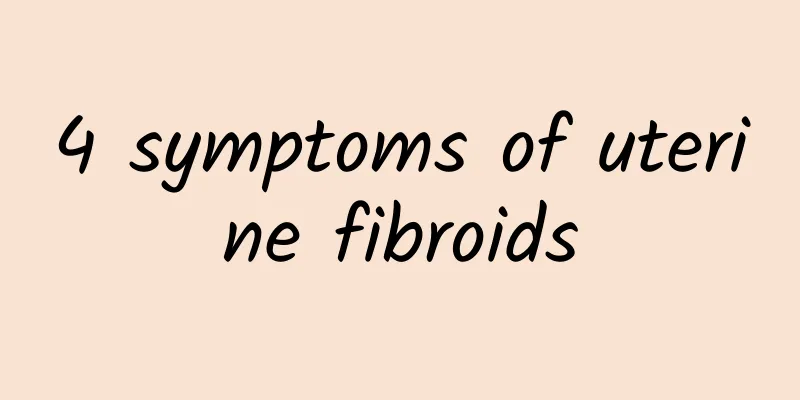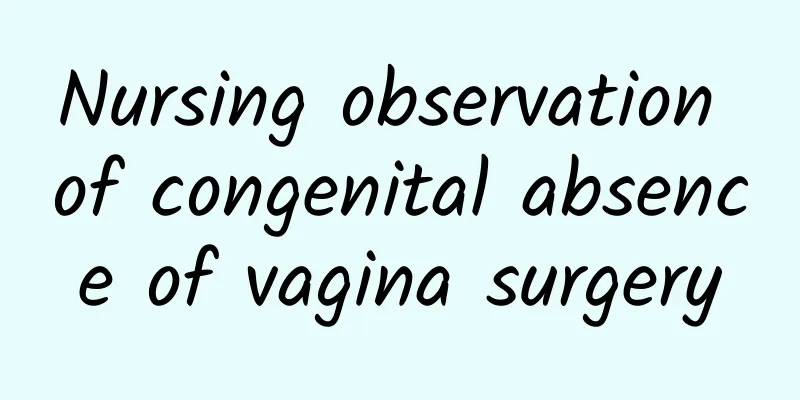What is the combination of uterine polyps and fibroids called? What is the difference between uterine polyps and fibroids?
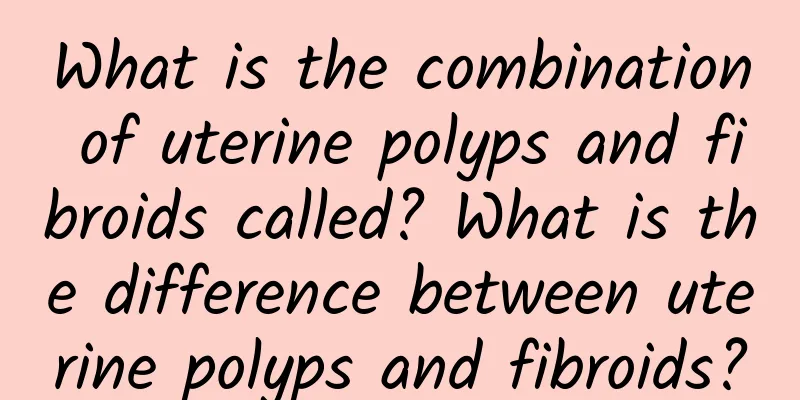
|
What is the combination of uterine polyps and fibroids called: Understanding the differences and treatments of uterine diseases Uterine polyps and fibroids are two common uterine diseases. Although they have similarities, they also have obvious differences. This article will detail the definition, symptoms, diagnosis and treatment of uterine polyps and fibroids, and at the end will provide some knowledge about "what is the combination of uterine polyps and fibroids called". Uterine polyps are benign masses that usually grow on the mucous membrane lining the uterine cavity. They are characterized by a rounded shape, similar to a hollow grape. Uterine polyps are usually highly vascular and can cause irregular menstruation and abnormal bleeding. Some patients may experience abdominal pain, difficulty urinating, and discomfort during sexual intercourse. In contrast, uterine fibroids are benign muscle tumors that occur primarily inside or outside the uterine wall. Uterine fibroids vary in size and number, with some being only a few millimeters, while others can be over ten centimeters. They are characterized by an irregular shape and can sometimes cause uterine enlargement and abdominal pressure. Some patients may experience symptoms such as dysmenorrhea, heavy menstruation, and pain during sexual intercourse. In terms of diagnosis, a gynecological examination, ultrasound examination and other imaging tests are generally required. A gynecological examination can help doctors detect masses in the uterus and determine their size and location. Ultrasound examinations can provide more detailed images to help doctors distinguish between uterine polyps and fibroids. In some complex cases, MRI or CT scans may also be required. Treatment depends on the patient's symptoms and health. For uterine polyps, if there is no obvious discomfort and symptoms, generally no treatment is needed. If there are symptoms such as bleeding and irregular menstruation, hormone therapy or surgical removal can be considered. For uterine fibroids, if the lesions are small and do not cause obvious symptoms, regular observation can be done. If the fibroids grow rapidly, enlarge, or cause discomfort, surgical removal may be required. Ending knowledge: The combination of uterine polyps and fibroids is called uterine polyp fibroids. It is a rare condition in which polyps and fibroids are present in the uterus at the same time. The symptoms of uterine polyps and fibroids may vary from person to person and may be more obvious and complex. The treatment method is generally determined by the main symptoms and the degree of health impact, and may require a combination of hormone therapy and surgical removal. In summary, there are obvious differences between uterine polyps and fibroids. Uterine polyps mainly grow in the mucosal layer of the uterine cavity, with a smooth shape and rich blood supply; while uterine fibroids mainly occur inside or outside the uterine wall and have irregular shapes. In terms of treatment, hormone therapy and surgical resection are common methods. The combination of uterine polyps and fibroids is called uterine polyps and fibroids. It is a rare condition that requires a treatment plan based on the patient's symptoms and conditions. I hope that through the introduction of this article, readers will have a more comprehensive understanding of uterine polyps and fibroids. |
>>: What are the symptoms of uterine fibroids? Serious symptoms of uterine fibroids
Recommend
What are the symptoms of female cervical erosion? How to prevent female cervical erosion?
Cervical erosion is a common condition of the fem...
There are 5 main types of painless abortion pre-examination
Abortion will more or less cause great harm to th...
Brief analysis of physical therapy for chronic cervicitis
As a common cervicitis disease, the incidence of ...
What are the symptoms of pelvic inflammatory disease?
Pelvic inflammatory disease is a very common gyne...
What should women pay attention to when using Kang suppositories for cervicitis? 7 principles of using Kang suppositories for cervicitis
Gongjingyankang suppository is a commonly used tr...
What should you pay attention to to avoid vaginitis?
Vaginitis is a very serious gynecological disease...
Precautions after endometrial thickening surgery
The normal endometrium will change periodically w...
How can women prevent vaginitis caused by mites?
Mites are parasites that are difficult to see wit...
Experts explain how working women can prevent uterine fibroids
With the increasing pressure of competition, many...
Diagnosis of endometrial tuberculosis
Many women do not know how to tell if they have e...
What are the symptoms of threatened abortion and biochemical miscarriage?
If you experience symptoms such as abnormal vagin...
Unexplained recurrent spontaneous abortion
Recurrent miscarriage makes many female friends m...
How to prevent threatened abortion in winter
Pregnant women are very worried about threatened ...
Can cervical warts be treated with Chinese medicine?
For diseases like cervical warts, it is better to...
Can uterine fibroids eat blood? What should people with anemia eat?
Uterine fibroids may cause excessive menstrual fl...


